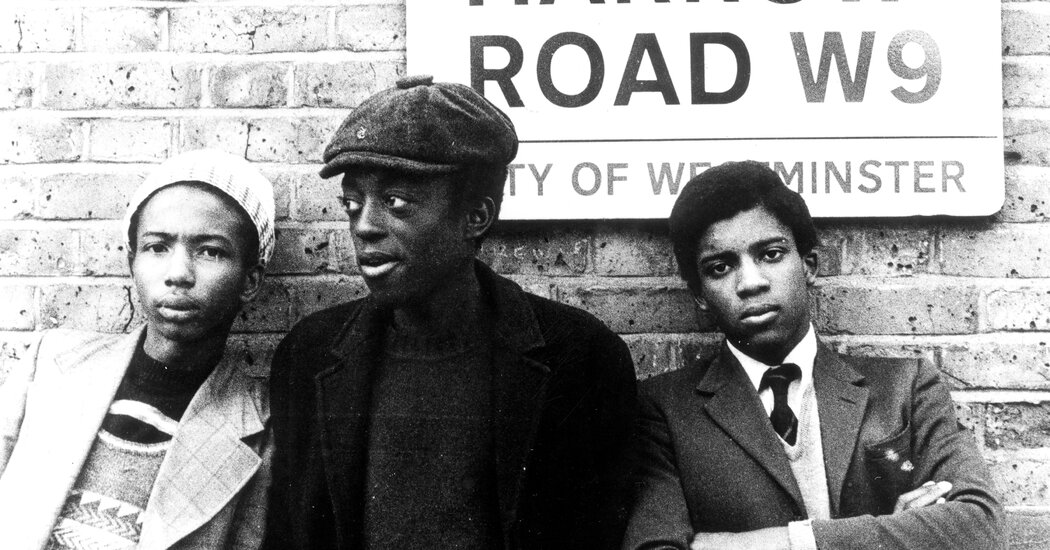States
Revisited for the 21st Century, A Black Cinema Landmark

Black Cinema Landmark Revisited: Movie fans went to the British Film Institute cinema on a gloomy London evening for the much-anticipated debut of an almost 50-year-old film. Excited audiences saw Horace Ové’s beautifully repaired “Pressure,” acclaimed as a Black British director’s pioneering achievement. Tragically, Ové died a month before his film was to be honored at the London and New York Film Festivals. Aged the London screening, Herbert Norville, who had a crucial role in “Pressure” aged 15, hoped spectators would understand “being Black, being British, and growing up in an era where racism was rife.”
A rousing 1974 social-realist drama, “Pressure” follows Tony, a young Black Londoner seeking work and belonging. Tony faces pressures from his activist elder brother, his pious West Indian mother, and a white British culture that resists his assimilation. Tony’s frustrations grow as possible employers, a friend’s landlord and the authorities discriminate. Norville, who played Tony, called the film honest about Black life in 1970s London in a post-screening interview. In an earlier Q&A, he said the film’s themes of “institutional racism and police brutality” are still relevant in Britain.
The Tate Museums and BBC have recently begun to focus more on Black British and Caribbean art. This restoration of “Pressure” is accompanied by a lengthy British Film Institute retrospective, “Power to the People: Horace Ové’s Radical Vision,” highlighting the director’s quest for institutional recognition in prior decades.
Creating “Pressure” was difficult. The film’s producer, Robert Buckler, was a BBC script editor in 1972, seeking stories on the “struggle for ordinary people.” After growing up in Peckham, a racially diverse London area, Buckler, who is white, saw a disparity between the changing culture and the BBC’s programming, which failed to depict it completely. Black British artists and the Caribbean Artists Movement were often ignored by mainstream cinema and television. Buckler’s BBC funding request for a film on a Black Englishman was rejected due to executives’ doubts.
The British Film Institute funded “Pressure” in 1974. Horace Ové hired professional and nonprofessional performers, and the film debuted at the London Film Festival the following year. Before its 1978 theatrical premiere, “Pressure” was delayed. Bureaucratic issues, not a restriction, caused the delay, according to British Film Institute archive chief Arike Oke. She confessed that the institution did not aggressively promote the film then.
The concepts of “Pressure” seemed hauntingly predictive. The video depicts Tony’s horrific police confrontation and imprisonment after attending Black Power rallies, recalling the 1976 Notting Hill Carnival incident in west London. Buckler said “Pressure,” like Spike Lee’s “Do the Right Thing” in 1989, was delayed due to fears about racial tensions.
After “Pressure,” Horace Ové was prolific in television, but the British film business was wary of Black talent for decades. Black filmmakers like John Akomfrah and Isaac Julien mainly worked in galleries, highlighting their struggles. Zak Ové, Horace Ové’s son, stressed that “Pressure” accurately depicted the era’s problems and should be respected for its raw truth.
Ashley Clark, curatorial director of the Criterion Collection, said that Ové preserved the story of the Black British experience by enabling Black voices to emerge in a context where these debates were typically constructed without them. Clark promoted “Pressure” by organizing screenings at the Brooklyn Academy of Music, where crowds were moved. The film’s powerful depictions of Black activism, Caribbean immigrants seeking socio-economic stability, and disaffected Black British kids struggling with restricted options made spectators ask, “Where has this been all my life?”
Resistance to Racism: ‘Pressure’ and Black British Experience
A Black Cinema Classic Restored
The British Picture Institute hosted a much-anticipated debut of Horace Ové’s restored “Pressure,” the first Black British director’s picture, on a gloomy London evening.
Ové died last month, weeks before his picture was scheduled for London and New York Picture Festival premieres. Herbert Norville, who acted in “Pressure” aged 15, told the London screening audience “what it was like being Black, being British and growing up in an era where racism was rife.”
Black Art Under ‘pressure’: Recognition And Representation Issues
With “Pressure,” a guy with a black beanie and green U.S. Army jacket gestures urgently. One lady with a black cap stands behind him.
The making of “Pressure” was complex. In 1972, BBC script editor Robert Buckler, who created the film, sought tales about “the struggle for ordinary people,” he stated in a recent interview. White Buckler grew up in Peckham, a racially mixed London area, and believed the BBC’s programming wasn’t “reflecting fully the way our society was changing around us,” he said.
Culture And Relevance: ‘pressure’ Documents Black Identity And Struggle
Horace Ové ’87. Following “pressure,” He Worked Extensively On Tv.
Buckler questioned if “Pressure” was delayed because it may inflame racial tensions, as New York Magazine did with Spike Lee’s 1989 film “Do the Right Thing” and “violent reactions” from Black audiences.
Ashley Clark, Criterion Collection curatorial director, noted that history “may not have been captured” without Ové. He created a platform “for Black people to speak for ourselves, in a landscape where a lot of those conversations were being had for us,” the filmmaker remarked.













You must be logged in to post a comment Login